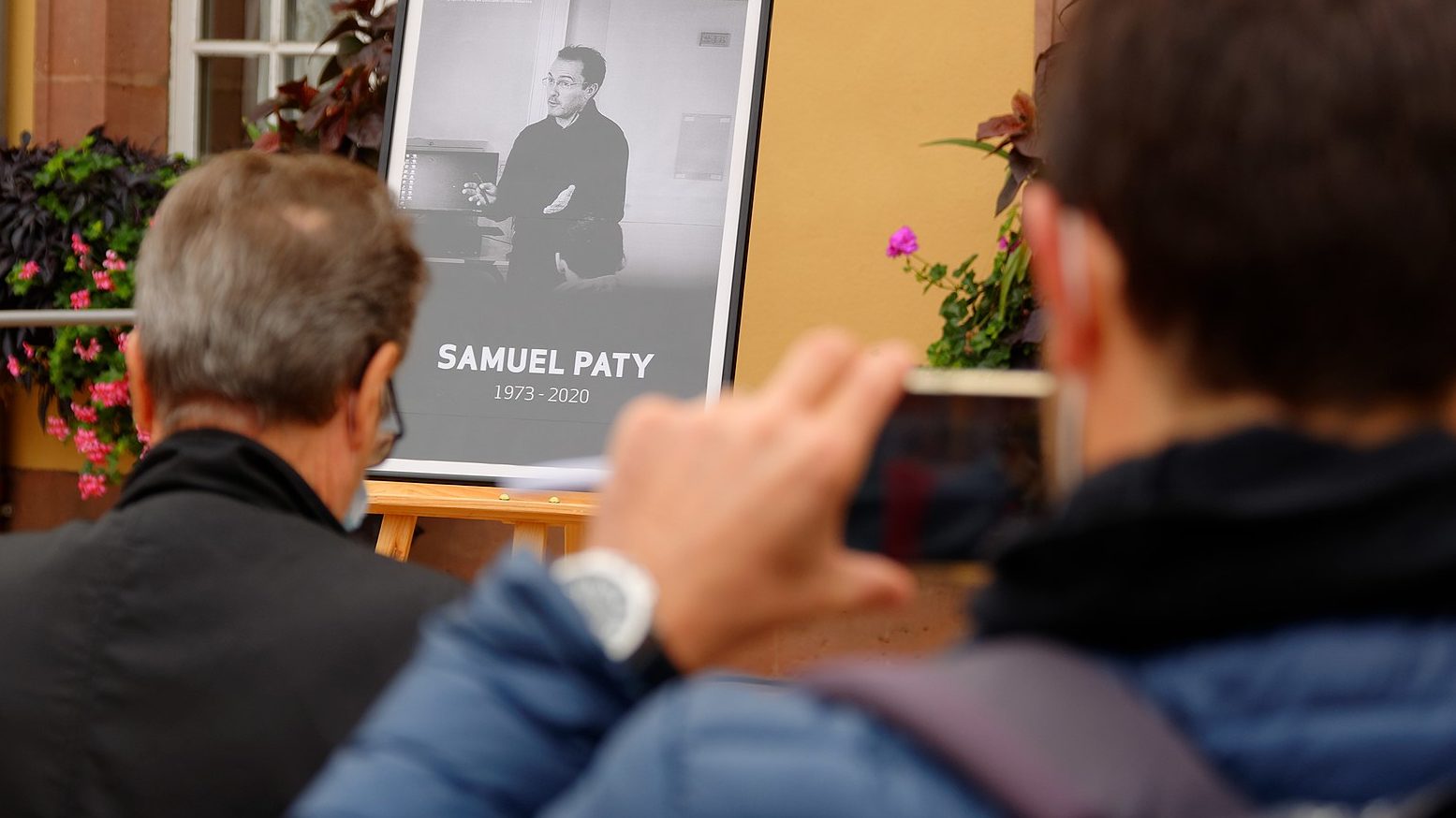War over Symbols
Al-Sharq Al-Awsat, London, November 5
The horrific slaughter of 47-year-old teacher Samuel Paty outside his school in Conflans-Sainte-Honorine, northwest of Paris, is an example of the incredible role symbols play in human life. Surely, diving into the meaning of symbology to societies and cultures requires more space than I have available here. But let me provide one hypothetical example that might clarify my point. If you take a piece of cloth and burn it in the street, you would be unlikely to solicit much reaction. Some might find themselves wondering what you are doing. Others won’t care. Now imagine if this exact same piece of cloth had the colors of the German flag on it and that you were standing and burning it in the center of Berlin. In this case, people would be very unlikely to ignore you. In fact, you might be arrested and face up to three years in prison. So what is the difference between the first and second piece of cloth? The difference is simply the colors. The colors transform a physical object (cloth, in our case) into a symbolic object (a national flag). This symbolic object, in turn, is one to which people feel a sense of belonging and connection. They feel morally responsible to protect and respect it. Now return to the killing of teacher Samuel Paty, which sparked widespread outcry all over the world. The symbolic interpretation of this incident reveals that France is split into two camps. On the one hand, there are those who believe that Muslim newcomers are an existential threat to France as a whole. On the other hand, there are Muslims who focus on the “motive” for the killing – that is, mockery of the Messenger, may peace and blessings be upon him – and view it as a manifestation of the humiliating and condescending attitude with which they’ve been met by French society. In my opinion, we must search for the heart of the crisis elsewhere: For the French, the essence of the problem is the distance between traditional France and multicultural France. Can France break free of its old self in order to become a nation that embraces its citizens with all their differences, colors and cultures? President Macron indicated that France will remain committed to its historic values. But is this really an option? Or is history pushing France in another direction? For Muslims, the essence of the problem lies in refusing to recognize France as their new homeland: learning the language, integrating into society and putting their old lives behind. Can the two sides take a leap of faith and make courageous decisions? Or will they let the divisions between them continue to grow wider and more dangerous than ever? – Tawfiq Al-Saif (translated by Asaf Zilberfarb)


